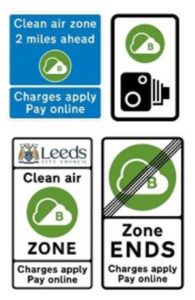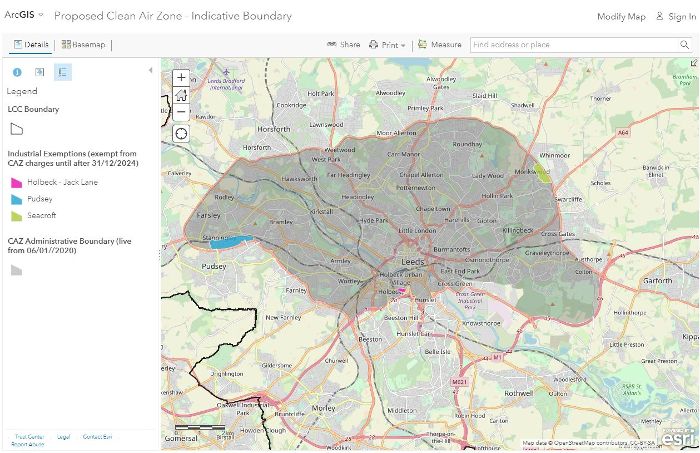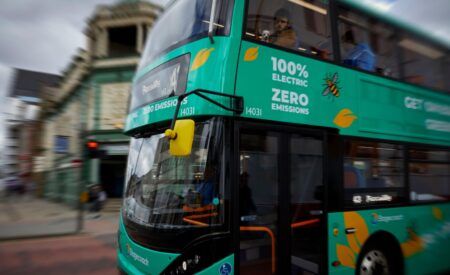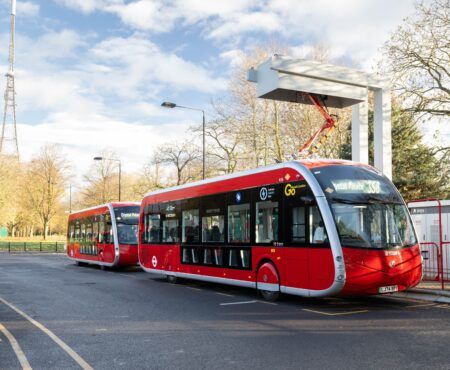Leeds City Council has begun to install the camera infrastructure that will be required to monitor and enforce the clean air charging zone (CAZ) that is expected to be operational by January 2020, and is intended to reduce air pollution and improve citizens’ health.
When live, the zone will tackle air pollution in Leeds by encouraging businesses to transition to cleaner, less polluting vehicles to avoid daily charges. The council has now begun to install a network of around 300 new, purpose-built cameras equipped with automatic license plate recognition (ALPR) technology at over 100 junctions around the perimeter of the zone as planned. The network will be designed, supplied, installed, operated and maintained by Siemens Mobility Limited, which has previously delivered similar solutions to monitor the Ultra-Low Emission Zone (ULEZ) in London.
The cameras will only be used to enforce the CAZ and will not be able to detect the speed of vehicles and cannot be used to issue speeding or parking fines. By recognizing registration numbers and comparing them with a national government database, the camera network system will be able to identify non-compliant vehicles driving within the CAZ boundary when the system is operational.
 The CAZ plans came after the UK Government instructed the council to tackle air pollution in Leeds as soon as possible, after predicting that parts of the city would likely fail legal air quality levels by 2020. Air pollution has been shown to cause or worsen a range of lung and heart conditions including asthma, chronic bronchitis, chronic heart disease and stroke. The zone will charge owners of the worst polluting trucks, buses, coaches, taxis and private hire vehicles. Private cars, light good vehicles, and motorcycles will be exempt from charges. The owners of affected vehicles meeting the council’s eligibility criteria are in the process of receiving financial support worth a collective £23m (US$28.6m) to help cover the costs of transitioning to cleaner vehicles.
The CAZ plans came after the UK Government instructed the council to tackle air pollution in Leeds as soon as possible, after predicting that parts of the city would likely fail legal air quality levels by 2020. Air pollution has been shown to cause or worsen a range of lung and heart conditions including asthma, chronic bronchitis, chronic heart disease and stroke. The zone will charge owners of the worst polluting trucks, buses, coaches, taxis and private hire vehicles. Private cars, light good vehicles, and motorcycles will be exempt from charges. The owners of affected vehicles meeting the council’s eligibility criteria are in the process of receiving financial support worth a collective £23m (US$28.6m) to help cover the costs of transitioning to cleaner vehicles.
“Having worked with the team in Leeds on a number of earlier projects, we are delighted to be working with the council on this program and to build on the work that we have already undertaken to deliver Transport for London’s Congestion Charging and Ultra Low Emission Zones,” commented Wilke Reints, managing director of Siemens UK’s Intelligent Traffic Systems division. “At the heart of the zone will be our Sicore II ALPR cameras that are proven in applications worldwide, with the ability to provide three-lane coverage with just a single camera, industry-leading image quality and number plate read accuracy. These cameras will not only monitor the CAZ, but could potentially also provide the highways team with a wealth of data both to help inform policy and aid tactical traffic management decisions to improve the road user’s experience.”
James Lewis, Leeds City Council’s executive member for resources and sustainability, said, “Like most residents, we believe that tackling air pollution to protect the health of everyone in the city is a priority. Whilst it is disappointing that we have been forced to postpone the CAZ’s introduction because of delays to government systems, the council is doing everything it can to ensure that we are ready to implement the zone within the shortest possible timescale.”





